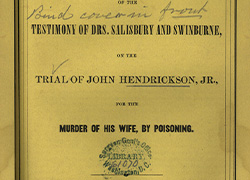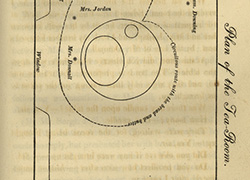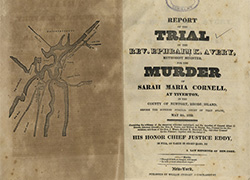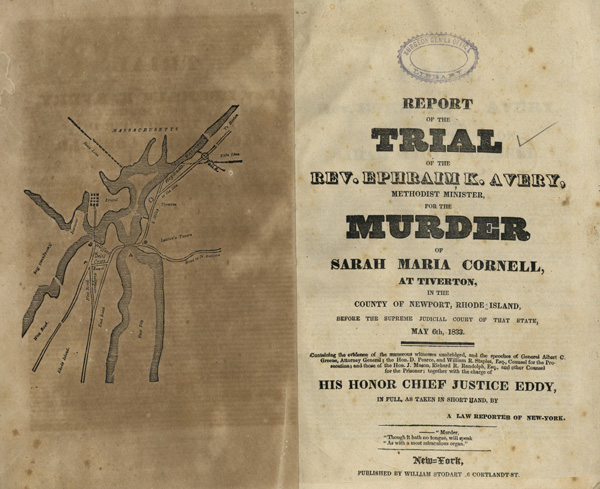Report of the Trial of Ephraim K. Avery..., 1833
Report of the trial of Ephraim K. Avery, Methodist minister, for the murder of Sarah Maria Cornell, at Tiverton...Rhode Island, before the supreme judicial court..., May 6, 1833. Containing the evidence of the numerous witnesses..., and the speeches of General Albert C. Green, attorney general; Hon. D. Pearce, and William R. Staples, esq., counsel for the prosecution; and those of the Hon. J. Mass, Richard R. Randolph, esq., and other counsel for the prisoner; together with the charge of his honor Chief Justice Eddy, in full, as taken in short hand, by a law reporter... 50 pp. (New York, 1833).
About the Case
In 1832 Ephraim Avery, a Methodist minister, was charged with the murder of Sarah Maria Cornell. Cornell, a young factory worker, was found hung up on a stake, beaten and choked. At trial, the prosecution brought forth letters written by Cornell, warning that if she went missing to inquire of Avery; other letters discussed her fear of being pregnant. Doctors and the women who laid out the body noted that Cornell’s lungs were filled with blood, and her knees had several abrasions. A fetus was found in the body, which, together with damage to the uterus, indicated an attempted abortion. Cornell had been a member of Avery’s church until she was expelled for allegedly lying and behaving promiscuously. The defense claimed that she wanted to punish him, and on several occasions had threatened to commit suicide. Medical witnesses for the defense argued that the bruises found near her groin and abdomen commonly occurred during pregnancy and that the eight-inch fetus was in the fifth month, so that the child could not have been Avery’s. Avery was acquitted, but the verdict was unpopular: a mob burned him in effigy and he was forced to move from Rhode Island to Ohio.


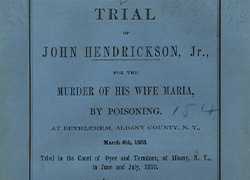
![On the top half of the page is a head and shoulders right profile portrait engraving of John Hendrickson, Jr. with left hand on chin]. On the bottom half of the page is a half-length, right pose, full face engraving of Maria Hendrickson, wife of the prisoner, with her right arm resting on table.](images/hendrickson-3_28410850R-sm.jpg)
